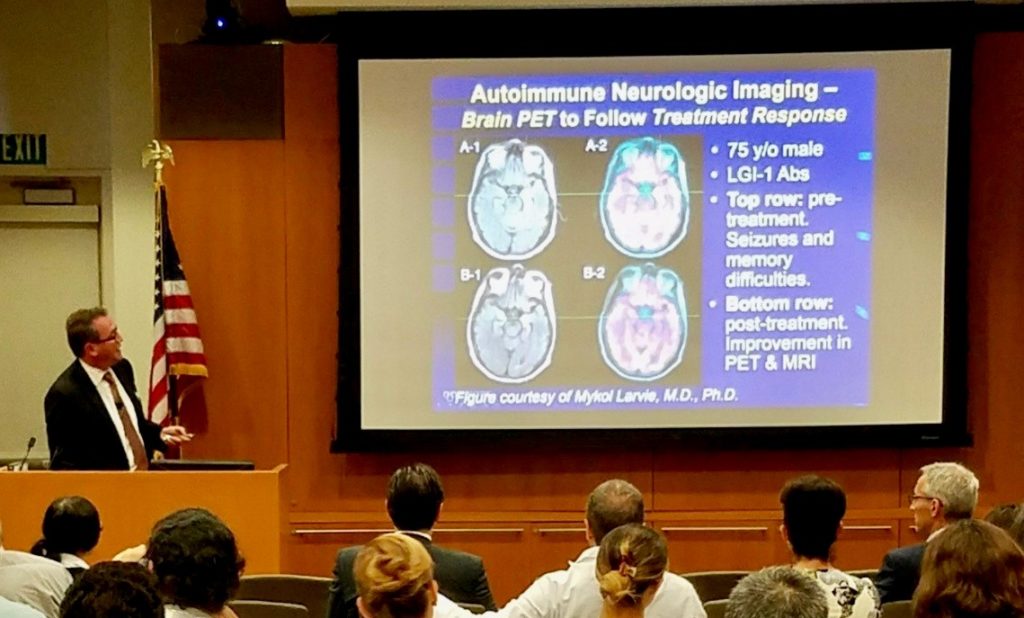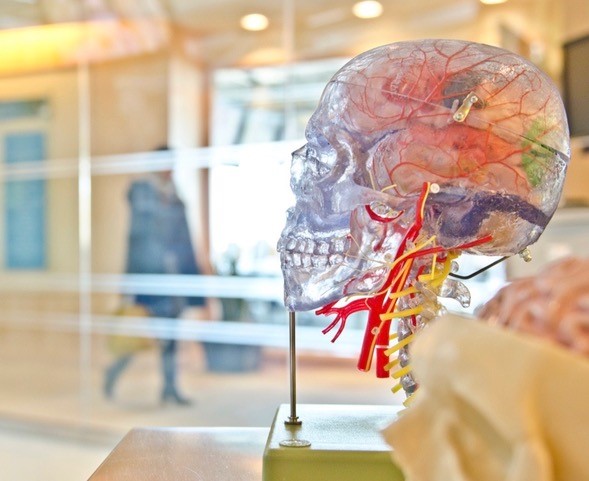Blog
Filter by
AEA was honored to co-host two educational events in June, featuring one of the world’s foremost experts on autoimmune encephalitis, Dr. Sean Pittock. The events, including a dinner presentation and Grand Rounds, where held on June 12 and 13, in Los Angeles, California, and were co-sponsored by AEA, the Keck School of Medicine of University […]
Viewers nationwide watched on Sunday, August 27, as three ladies (survivors!) and their families shared stories of their tumultuous experiences with AE on the new HLN series “Something’s Killing Me.” On Monday, August 28, CNN followed the program with a feature story on the disease . The rapid descent into illness that often occurs and the amazing […]
Rebecca Katz, a nationally known nutritionist, chef, and speaker has published “The Healthy Mind Cookbook.” Rebecca has collected numerous accolades, including having worked with the nation’s top wellness experts, as well as being featured in The Washington Post, The Atlantic, the Oprah Show, and NPR. She has sorted through the large and growing volume of […]
“Mommy, the baby isn’t moving.” Words no parenting class can prepare you for. As I rushed to my son’s aid, I would find him face down, unresponsive behind the couch. His skin cold to the touch, his eyes glazed over, drool dripping from his mouth. Alive, but my little boy was not there, he was […]
HLN will air an episode on autoimmune encephalitis as part of their series “Something’s Killing Me,” on August 27, 9 p.m. EST. The show will feature the experiences of Susannah Cahalan, Emily Gavigan, and Madison Jensen. We are pleased that AEA had the privilege of helping CNN answer questions about the disease and make introductions […]
One of the major difficulties that many patients with AE face is that when the brain is affected, various symptoms present in different facets of human experience. These may include a person’s thoughts and behavior, emotions, speech, physical movements, memory, sleep habits, sensory experience, personality, etc. And these may even change from day to day as […]
As difficult as diagnosis and treatment are for autoimmune encephalitis, fortunately for the community of patients, families, and caregivers, rapid progress has been made within only a decade. A group of physicians in Oxford, England has published a review for the journal Neuropharmacology that summarizes the various types of AE, including a classification of syndromes, […]
Hanging out with friends and being a normal 19-year old seemed to be the right thing to do during the summer of 2010. Having a great time and then it all went black . . . I woke up in the hospital in Delta, Colorado. It was very faint. I remember my grandparents were there […]
Researchers in three countries have come together to publish a review article in Current Opinion in Neurology, June 2017. Issues addressed in this comprehensive publication include: challenges in diagnosis, antibody detection methods, treatment decisions, seronegative cases and the challenges in monitoring patients over time. Points of emphasis include the following: Many autoimmune encephalopathies are central […]
In many areas of medicine, treatments are increasingly becoming targeted in a way that benefits patients. This is happening in fields ranging from oncology to neurological disease. In this month’s Neurology Now, treatment for autoimmune encephalitis is being cited as one area where “precision medicine” holds promise for better and targeted treatments according to antibody […]




